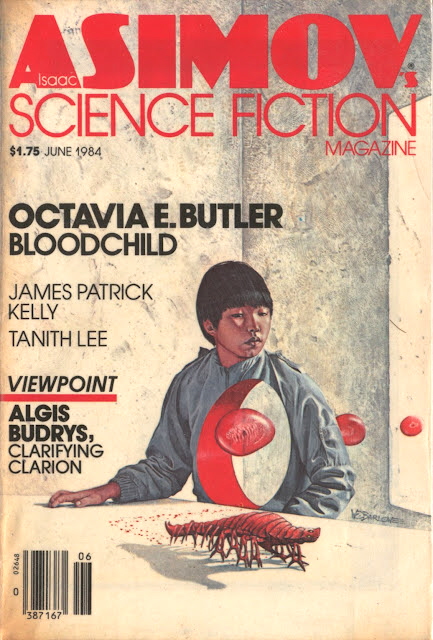This week, we spoke about emerging diversity in science fiction authors and the different POV's that these stories are starting to take with the inclusion of different demographics. Right off the bat, I want to say that I definitely think that science fiction (and storytelling in general) has become much more diverse and more subgenres have branched out since authors of different demographics have become more mainstream. In particular, Bloodchild by Octavia Butler brings themes and questions to the table that I think would never have been written about by a white man. I believe that it's almost impossible, or that it's quite futile to try to separate the art for the artist, as people say. The art you make (or words you write, in this case) come directly from your experiences and represent what you think and feel as a person. It would be foolish to think that you couldn't diversify the type of fiction we experience by hearing stories from different demographics of authors.
Bloodchild is a very interesting short story exploring a scenario far in the future where humans coexist with insect-like aliens who require a host body for reproduction. The insect aliens (who are sentient and can speak with the humans) use the humans as their host bodies, and it is treated as a special task and a great honor. Another special circumstance is, because the aliens need the female-bodied humans to stay alive so that they can keep the human populace going. Because of this, the aliens only use males to reproduce, and only male humans need undergo the horrific process of birthing one of the alien children (one that involves cutting open their whole body to extract the maggot).
It's an interesting scenario that provided an equally interesting in-class discussion. A lot of men get really touchy about female-bodied exclusive subjects such as childbirth, menstruation and those kinds of things, and I thought the story was a good catalyst for getting everyone to think about situations like that. In general, I think that things like menstruation and childbirth would be taken more seriously and be a lot less the butt of jokes if they happened to men, as well as many other things. Much of the stigma would be very different and probably translated into a point of pride for many men. It's an example of a valuable conversation that women and non-white people can bring to the table in the world of fiction.

No comments:
Post a Comment